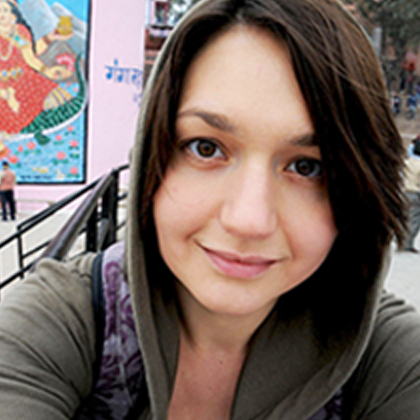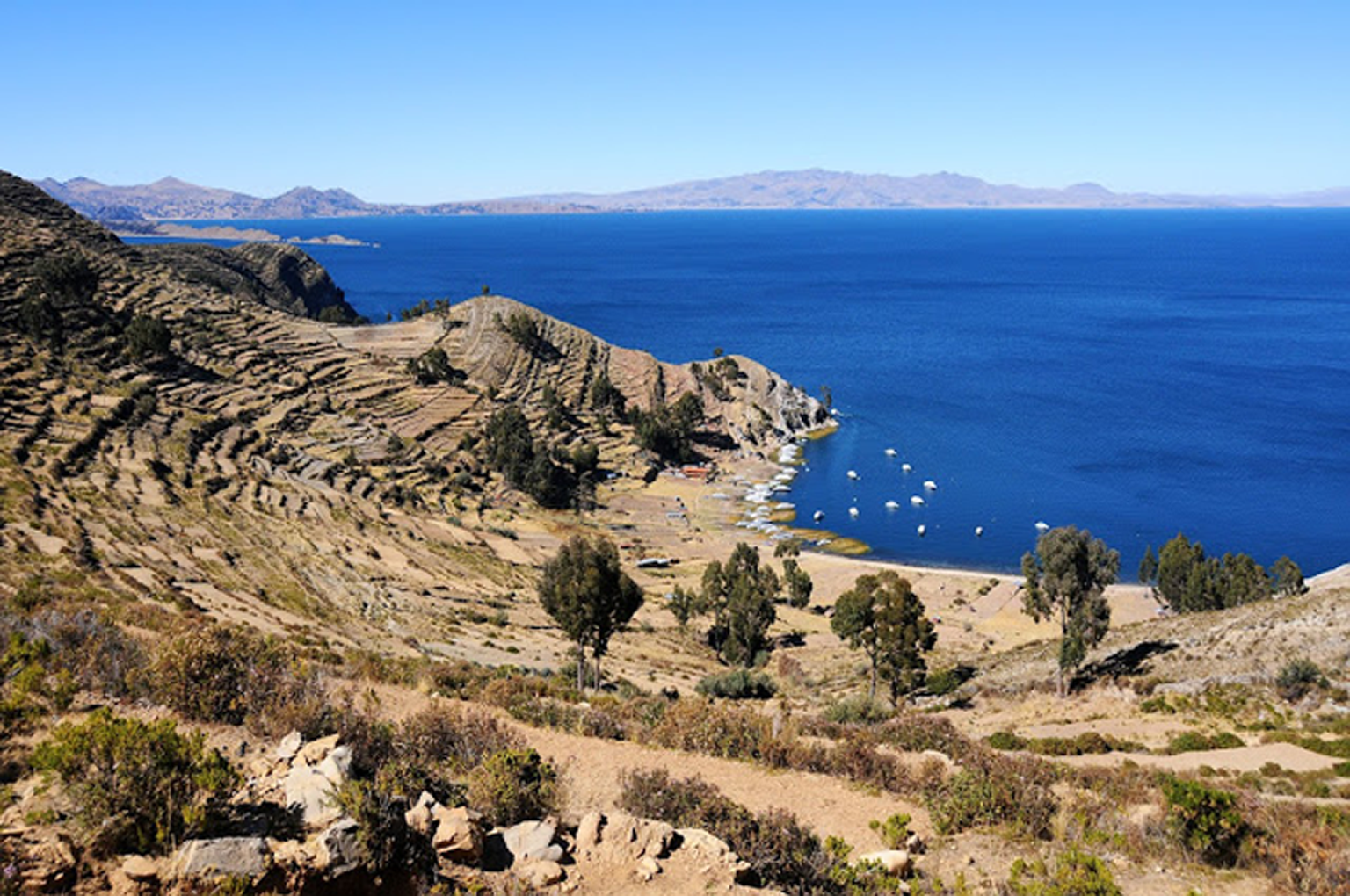- Posted by:
- anjci
- Under:
- Eurovision
I will be missing the Eurovision Song Contest this year.
It will be for the first time that I miss Europe’s highest-profile music talent show since getting seriously hooked on it in 1997. I came close to missing the Contest once before – in 2005, as a TV-less student in Finland – but eventually broke inside a home of a near stranger to catch Greece make its way to the top. This is how bad I am when it comes to Eurovision. I love the show with inexpressible passion. I would do almost anything to watch it.
And yet I will be missing this year’s Contest. I will be revisiting Washington DC after six long years, and my friends there will likely not understand if I spend good three hours in the peak of an afternoon stuck indoors with my laptop. I am an adult now – and I have made my choice. There won’t be Eurovision this year for anjči. I’ll have to wait till next one. It is sad beyond words.
No-one could stop me from doing what I do every year, however – namely, listening to every entry weeks before the event and splashing out in profuse commentary. Below are my notes on the 2010 Eurovision Song Contest which no-one will hear coming out of my mouth during the Contest itself. Exclusively in my blog!
Voting system and participants
A shift in the voting system introduced at last year’s Eurovision – from all-public to an equal mix of the public and a jury of experts – was widely acknowledged as successful and is looking to stay. In 2010, it will be applied not only during the finals, like in 2009, but also the semi-finals. A real novelty in this year’s voting system will be allowing the public to vote from the moment the first song is played. It looks like the organisers are finally responding to the critique that the listeners’ memories tend to be short and therefore favour the acts nearer the close of the show. I am hoping that the new system will not lead to a certain time advantage for earlier acts – smart viewers will no doubt figure out the dialling codes for their favourites from the pre-announced sequence of the songs, too.
A number of participating countries have seen changes to their own selection processes. Germany, for example, staged a special multi-round TV casting show to select the winning song. Another notable change came from Greece. The country where the artist and the song are normally pre-chosen internally and handed over to the national vote afterwards – Greece dropped the internal selection this year. Bravo, Ellada!
While Germany and Greece introduced changes in an attempt to improve their results, some countries have done so for another reason – to cut costs. Latvia, Estonia, Romania and Serbia all chose to scrap semi-finals and reduced their national selection to finals alone. Serbia even went as far as dropping its high-profile annual Beovizija event – while Hungary and Montenegro pulled out of the Contest altogether, signalling real financial difficulty. Surprisingly, however, Albania not only continued its tradition of submitting the Eurovision entry first – but also expanded its national selection. I guess there were higher priorities at play there.
Old languages, familiar faces
A few trends are continuing from last year. The comeback of national languages can once again be observed, with the likes of Bulgaria, Finland, France, Israel, Poland and most of the ex-Yugoslavian republics all competing with non-English entries. There are also a number of interesting surprises. Iceland’s song is, rather unexpectedly, partly performed in French, a language unintuitive to Iceland. On the other extreme, Bosnia and Herzegovina will present a song in English, for the first time since 2004 and the second time in history. (FYR) Macedonia, too, will surprise the audience by an infrequent part-English entry.
A number of acts are seeing a return – both in substance and in form. The girl trio of Feminnem representing Croatia this year can be remembered for performing under the Bosnian colours back in 2005. Ireland’s Niamh Kavanagh won the Eurovision for her country back in 1993. Moreover, many composers will look familiar to Eurovision regulars. Take the example of Hanne Sørvaag and Fredrik Kempe – the co-authors of Didrik Solli-Tangen’s entry for Norway. Sørvaag co-authored Germany’s 2008 Eurovision song – while two of the songs co-written by Kempe have represented Sweden in the past.
Finally, a notable country return will be made by Georgia. The country was forced to withdraw its 2009 entry due to some lyrics controversy, but will be duly represented this year.
Quality cutting?
I welcomed the long-awaited changes in the selection process introduced by some countries to improve the quality of their Eurovision entries. It has paid off particularly well for Germany, whose entry – an energetically melodic “Satellite” by Lena Meyer-Landrut – sounds fresh and upbeat. In a difficult financial situation facing Europe, however, the scaling back of the national selection processes by some countries meant that the average quality of the songs has unfortunately decreased compared to last year.
Take the Baltic countries, for instance. All three had to secure sponsorship to be able to afford the luxury Eurovision is. The quality of the songs clearly came second. Latvia’s “What For?” by Aisha is a tearfully dull complaint about how difficult life is. Lithuania knew no better than re-using its embarrassing “comedy show” formula tried once before in 2006 (“We Are the Winners”) to come up, this year, with “Eastern European Punk”. Finally, Estonia’s “Siren” is absolutely fine a tune but a far cry from last year’s stunning “Rändajad”. It seems that the Eurovision success is following the Baltic region’s long-gone economic growth.
The financial difficulties aside, some countries also saw an unnecessary influx of bureaucracy. Who else but the usual suspects of Belarus and Ukraine? Belarus had its public contest replaced with an internal one having already selected a winner – and consequently made the winning act number two pick a different song. Similarly, Ukraine had to re-run the staging of its national contest following a change in the TV broadcasting company’s management – eventually also disqualifying the winning song and submitting a different one.
Go folk, life is peaceful there
I believe that Eurovision should not only be about uniform, catchy songs. Europe is a region with rich diversity of cultures, languages and traditions. The artists should use this diversity in their favour to stand out – not become painfully alike. Every song should therefore carry a bit of the country it represents, and some countries have consistently embraced their musical roots. Instantly recognisable by their respective national motives, Ireland and Greece have been particularly good at this. Ireland has the highest number of Eurovision victories on record, having won seven times. Greece won once before, in 2005, and has had numerous top 10 hits.
Norway’s Alexander Rybak proved that traditional motives can be successful with his semi-folk “Fairytale” of a winner in 2009. In a likely attempt to repeat Rybak’s triumph, a number of this year’s participants have taken their entries dangerously close to national folklore as well. Finland’s “Työlki Eellää”, for example, balances right on the edge of pop and folk; the song’s video features scenes from farm life in wintery Finland. The title of Slovenia’s entry, “Narodnozabavni Rock” (“Popular Folk Rock”), says it all. The lyrics of Slovakia’s “Horehronie” have been written by one of the most acclaimed national poets and praise the beauty of the country’s mountains – all that to an ethnic pop tune. Indeed it seems that Europe has gone all folk at the 2010 Eurovision Song Contest.

And it is Serbia that has beaten the lot. The audience will have the honour of watching Milan Stanković and his supporting act all wearing Serbian national costumes and moving around the stage in a folkey dancey manner. The song “Ovo je Balkan” (“This is Balkans”, predictably) was written by Goran Bregović, the former frontman of ex-Yugoslavia’s once hugely popular band Bijelo Dugme. Bregović is not new to Balkan folklore, having previously composed songs for Emir Kusturica’s movies. I would suggest that the veteran rocker continues to focus on that – and perhaps some village festival themes – and spare us Eurovision fans in the future.
And the 12 points go to…
After the splash of criticism above, it may seem that I am actually missing this year’s Eurovision Song Contest on purpose. Not true! Although 2010 is no match for 2009 – where close to half of the songs boasted solid quality – it does offer some decent material.
Without further ado, I admittedly fail to understand the whole hype about Israeli Harel Skaat’s “Milim”, bookies’ current favourite to take Eurovision home. I likewise do not believe in the much applauded Azeri entry. Germany’s “Satellite” is certainly an impressive breakthrough, but a slight overshot for Eurovision. I like Croatia’s “Lako je Sve” and believe it will land firmly among the top 10. Disregarding the rest – hapless folk attempts, bland ballads, pure outsiders and the UK, whose entries I simply do not bother listening to anymore – anjči’s points are awarded below.
Eight (8) points go to Norway: Didrik Solli-Tangen “My Heart Is Yours”. The hosts have staged an impressive national selection and have involved celebrated composers to come up with a very strong ballad. Go, Norge!
Ten (10) points go to Armenia: Eva Rivas “Apricot Stone”. A Russian-born singer has teamed up with composer Martirosyan and lyricist Kavaleryan, of whom the latter has taken part in Eurovision six times. The result is a catchy tune with just the right touch of oriental rhythm. A real winner!
Twelve (12) points go to… Denmark! Chanée & N’evergreen “In A Moment Like This”, a deep, moving track with a memorable guitar line. Last time we saw a Danish duo at Eurovision was in 2000 – and the Contest took place in Copenhagen the year after. Again, we see impressive composing talent involved in maestro Thomas G:son himself.
My advice to everyone would be to book their visit to the host city of next year’s Eurovision Song Contest – wonderful Copenhagen – today! I will certainly not be missing that one.
In a moment like this!











Comments